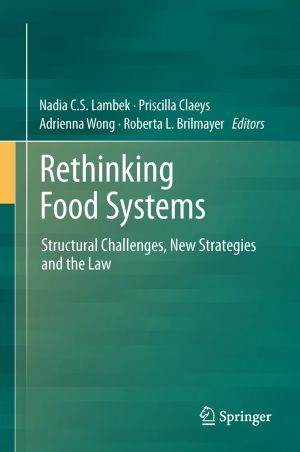
Taking as a starting point that hunger results from social exclusion and distributional inequities and that lasting, sustainable and just solutions are to be found in changing the structures that underlie our food systems, this book examines how law shapes global food systems and their ongoing transformations. Using detailed case studies, historical mapping and legal analysis, the contributors show how various actors (farmers, civil society groups, government officials, international bodies) use or could use different legal tools (legislative, jurisprudential, norm-setting) on various scales (local, national, regional, global) to achieve structural changes in food systems.
Section 1, Institutionalizing New Approaches, explores the possibility of institutionalizing social change through two alternative visions for change - the right to food and food sovereignty. Individual chapters discuss Via Campesina's struggle to implement food sovereignty principles into international trade law, and present case studies on adopting food sovereignty legislation in Nicaragua and right to food legislation in Uganda. The chapters in Section 2, Regulating for Change, explore the extent to which the regulation of actors can or cannot change incentives and produce transformative results in food systems. They look at the role of the state in regulating its own actions as well as the actions of third parties and analyze various means of regulating land grabs. The final section, Governing for Better Food Systems, discusses the fragmentation of international law and the impacts of this fragmentation on the realization of human rights. These chapters trace the underpinnings of the current global food system, explore the challenges of competing regimes of intellectual property, farmers rights and human rights, and suggest new modes of governance for global and local food systems. The stakes for building better food systems are high. Our current path leaves many behind, destroying the environment and entrenching inequality and systemic poverty. While it is commonly understood that legal structures are at the heart of food systems, the legal academy has yet to make a significant contribution to recent discussions on improving food systems - this book aims to fill that gap.